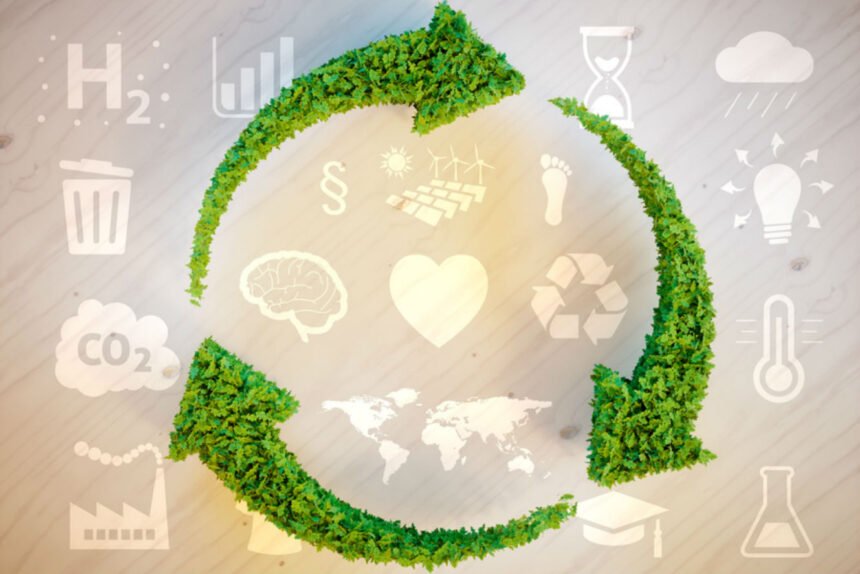In a move aimed at promoting a circular economy and reducing waste, the Indian government is exploring the implementation of policy instruments such as Extended Producer Responsibility (EPR). Senior officials from the Ministry of Mines have highlighted the importance of incentivizing recycling to achieve resource efficiency and carbon neutrality under the Sustainable Development Goals (SDG) 2030 initiative.
The Ministry of Mines and the Ministry of Steel have jointly issued recycling frameworks that focus on the development of the recycling sector using advanced technology. These frameworks aim to enhance resource efficiency and pave the way for carbon neutrality in the country. The government’s intention is to foster a sustainable and environmentally friendly approach to waste management.
Upendra C Joshi, Joint Secretary at the Ministry of Mines, emphasized the significance of these recycling frameworks and highlighted ongoing discussions regarding the implementation of EPR. This policy instrument is expected to provide incentives for recycling activities across the nation.
EPR is a concept that places the responsibility for managing waste on the producers of goods, rather than on consumers or local governments alone. It encourages manufacturers to take responsibility for the entire life cycle of their products, including their disposal. By implementing EPR, the Indian government aims to create a framework that holds producers accountable for the environmental impact of their products and motivates them to adopt sustainable practices.
The introduction of EPR is seen as a crucial step towards establishing a circular economy, where resources are conserved, waste is minimized, and materials are continuously reused or recycled. By shifting the burden of waste management to producers, EPR encourages them to design products with recyclability and reusability in mind. This approach not only reduces the amount of waste generated but also promotes the development of recycling infrastructure and industries.
The Indian government recognizes the importance of leveraging advanced technology to enhance the recycling sector. By embracing innovative solutions, such as state-of-the-art recycling technologies, the country can achieve greater efficiency in resource utilization and make significant progress towards carbon neutrality. These efforts align with the SDG 2030 initiative, which aims to address pressing global challenges, including climate change and sustainable development.
The discussions surrounding EPR and other policy instruments reflect the government’s commitment to promoting sustainable waste management practices and reducing the environmental impact of production and consumption. Through these measures, the government aims to create a more sustainable future for India, where resources are managed efficiently, waste is minimized, and environmental degradation is mitigated.
Implementing EPR and fostering the growth of the recycling sector will require collaboration between various stakeholders, including government bodies, producers, consumers, and waste management entities. The government’s emphasis on advanced technology underscores the need for innovation and research in recycling processes, ensuring that they are efficient, economically viable, and environmentally friendly.
The Indian government’s focus on promoting a circular economy and reducing waste through policy instruments like EPR demonstrates its commitment to sustainable development. The issuance of recycling frameworks and ongoing discussions regarding EPR highlight the government’s efforts to develop the recycling sector using advanced technology, achieve resource efficiency, and work towards carbon neutrality. These initiatives align with the SDG 2030 initiative and aim to create a more sustainable and environmentally conscious future for India.




